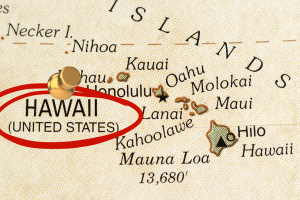(for Federal level bonds, search here: nationwide search)
Hawaii Bond Applications:
Hawaii probate bond application
Hawaii ERISA Pension Plan Fidelity Bond Application
Hawaii Janitorial Services Bond Application
| Electrical Workers Union 1186 Fringe Benefits Bond | Hawaii – Anytime Fitness Franchise Health Club ($25,000) Bond | Hawaii – Appraisal Management Company ($25,000) Bond | Hawaii – Concessionaire Bond | Hawaii – Guard/Agency ($5,000) Bond |
| Hawaii – Mortgage Servicer ($100,000) – NMLS Bond | Hawaii – Private Detective Agency ($5,000) Bond | Hawaii – Private Trade, Vocational or Technical School Bond | Hawaii – Promoter, MMA Bond $10,000 | Hawaii – Public Official Bond |
| Hawaii – Small Dollar Installment Loans ($30,000) Bond – NMLS | Hawaii Contractor License Bond | Hawaii Notary Bond $1,000 with $10,000 EO | Hawaii Notary Bond $1,000 Without EO | Hawaii Public Adjuster Bond |
| HI – Third Party Administrator Bond |
Mastering Hawaii's License and Permit Bonds: Your Complete Guide

In Hawaii, License and Permit Bonds serve as crucial tools for ensuring business compliance. If you're navigating the application process for these bonds, understanding the details can make a significant difference. Let’s break down everything you need to know about License and Permit Bonds in Hawaii.
The Backbone of Legal Business Operations: License and Permit Bonds
In our experience, License and Permit Bonds are the cornerstone of legal business operations in Hawaii. These bonds are typically required by state or local government agencies to guarantee that businesses follow regulations. Without them, your business might face hefty penalties, delays, or even shutdowns. Whether you’re a contractor, a liquor store owner, or a car dealer, the proper License and Permit Bond is essential to obtaining and maintaining your license.
A Closer Look: What License and Permit Bonds Really Are
We’ve discovered that License and Permit Bonds serve as a financial guarantee to ensure businesses adhere to state regulations. Here’s what they do:
- Act as a security measure: Ensures that businesses comply with local laws and industry regulations.
- Protect consumers: In case of non-compliance, customers or affected parties can file a claim for compensation.
- Safeguard government interests: Bonds make sure that public agencies are not financially responsible for the failures of private businesses.
These bonds are issued by surety companies, and if a business violates any terms of the bond, the surety provider compensates the damaged party, which the business must later repay.

Why Hawaii Demands License and Permit Bonds: Ensuring Accountability
From our perspective, Hawaii’s License and Permit Bonds are in place to promote accountability and ethical business practices. When you secure one of these bonds, you’re demonstrating to the state that your business:
- Complies with laws: Guarantees adherence to industry-specific regulations.
- Prevents fraud: Ensures that companies engage in honest dealings.
- Protects public welfare: Helps mitigate the risks of consumer fraud or unsafe practices.
Without this financial guarantee, businesses would have little incentive to meet these obligations.

The Most Common License and Permit Bonds in Hawaii
We’ve observed that Hawaii requires a range of License and Permit Bonds, depending on your industry. Some of the most common types include:
- Contractor License Bonds: Required for general contractors and specialty contractors to ensure adherence to building codes and state laws.
- Auto Dealer Bonds: Mandated for motor vehicle dealers to protect against fraudulent sales or unethical practices.
- Liquor License Bonds: Needed for businesses selling alcoholic beverages, ensuring compliance with state alcohol regulations.
- Tax Bonds: Ensures the timely payment of state taxes, often required for businesses involved in sales or service industries.
Each type of bond serves a specific regulatory purpose and varies in cost and application requirements.
Your Roadmap to the Application Process
We’ve found through experience that applying for a License and Permit Bond in Hawaii is a straightforward process when you follow the proper steps:
- Determine the Bond Requirement: Identify which bond you need based on your industry and business activities.
- Choose a Surety Company: Work with a reliable surety bond provider that understands Hawaii’s laws and regulations.
- Submit Your Application: Provide the required information, such as financial statements, credit reports, and business licenses.
- Undergo Financial Review: The surety company will assess your financial stability and creditworthiness to determine bond approval.
- Receive Your Bond: Once approved, you will receive the bond, which must be filed with the appropriate government agency.
- Pro tip: Maintain a good credit score, as it can lower your bond costs significantly.
The Benefits of Holding a License and Permit Bond in Hawaii
We’ve come to understand that holding a License and Permit Bond offers both tangible and intangible benefits for business owners in Hawaii:
- Faster licensing: Having the right bond in place often expedites the licensing process.
- Consumer trust: Customers feel safer when they know your business is bonded, which can improve your reputation.
- Legal compliance: It helps you avoid fines, penalties, or the revocation of your business license.
- Financial protection: Bonds act as a safeguard for the public against losses due to your business’s failure to comply with regulations.
Best Practices for Securing and Managing Bonds
In our dealings with businesses across Hawaii, we’ve consistently found that the following best practices can help you manage your bonds effectively:
- Stay organized: Keep records of your bond application, financial reviews, and renewal dates to avoid any coverage lapses.
- Review bond terms regularly: Ensure you are always aware of your bond’s obligations, as regulatory changes may affect your coverage.
- Renew on time: Missing your bond renewal can lead to fines, license suspension, or delays in operations.
- Work with experienced providers: A trusted surety bond provider can offer expert advice, ensuring you meet Hawaii’s specific requirements.
Final Thoughts: Making License and Permit Bonds Work for You in Hawaii

From our experience, securing the right License and Permit Bond in Hawaii is more than just checking off a legal requirement—it’s about ensuring long-term business success. Whether you’re a contractor, auto dealer, or in another regulated industry, these bonds help you stay compliant and build trust with your customers. With a clear understanding of the process and the benefits, you can navigate Hawaii’s bond requirements confidently and efficiently.
By following the guidelines above and working with trusted experts, you’ll not only meet your regulatory obligations but also set your business up for a smoother, more secure future.
Hawaii Sample Bond Forms:
Sample Wage and Welfare Bond Hawaii
See more about Swiftbonds at our home page.
